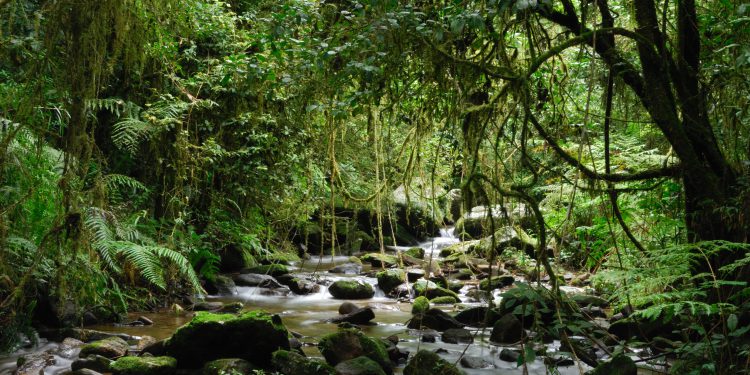Indigenous Peoples are at risk as a result of COP26 decisions to protect forests, threatening access to their own lands and to livelihoods, according to a letter in the journal Nature, Ecology & Evolution.
The authors call for an independent data sharing platform to document the impact of new initiatives on the lives of Indigenous Peoples.
Written by a group of scientists led by Dr Marco Haenssgen, Assistant Professor in Global Sustainable Development at University of Warwick, the letter says the key problem is top-down decision making.
“It is important that the burden of mitigating climate change should not fall on Indigenous communities who are the least responsible for biodiversity and climate crises,” it says.
Indigenous people live in many of the forests that are global carbon sink hotspots, which absorb more carbon from the atmosphere than they release. This creates the potential for ongoing conflict.
They say the new platform should be developed by Indigenous scholars and activists. It would share, openly, evidence of how Indigenous peoples’ livelihoods are being impacted by conservation efforts.
“Indigenous people are essential for effective global forest conservation, but Indigenous groups around the world have been experiencing dispossession and impoverishment from misdirected, politically appropriated conservation initiatives,” they write.
In Asia, South America and Africa conservation legitimises state control of ancestral lands, interferes with local, sustainable, forest management practices, and even accelerates deforestation and land degradation.
“Thailand has seen 18,000 cases of forest trespass since 2014”
“Misunderstanding the realities and priorities of Indigenous peoples – including land-tenure rights, governance autonomy, human dignity, material livelihood and cultural production – has regularly pushed forest-dwelling communities into a precarious existence,” they write
It has created “perverse incentives that undermine forest conservation goals.”
Nearly 18,000 cases of illegal forest trespassing have been recorded in Thailand since the 2014 military coup, often directed at people who have resided in the forests for more than a century.
And state-led forest restoration in Madagascar has not protected land tenure.
Indigenous communities have inhabited forest areas long before they were declared protected. Their superior ability to manage their natural environment has been demonstrated repeatedly, the letter says.
“The COP26 declaration, signed by 141 parties, explicitly recognises the important role of forest-dwelling Indigenous peoples who depend on forests for their livelihoods and have a key role in their stewardship.
“A group of high-income governments and private organisations pledged US$1.7 billion in financial support for Indigenous and local communities.
“Although these developments acknowledge the role of Indigenous people in forest conservation, the true costs of this conservation remain elusive and Indigenous groups have already critiqued their limited inclusion in the COP26 deliberations.”























